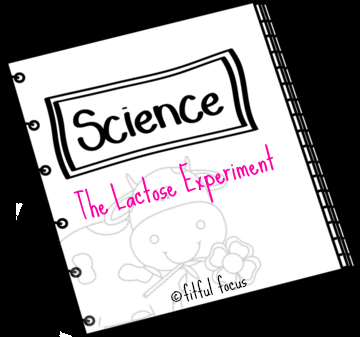First things first, did you see that I was featured on the Lifestyle Accountability Show yesterday?! Wellllll, I WAS! Go give it a listen and give those guys some love.
Now onto today’s post:
When I was 14 years old, I started going to the gastro doc. I was gaining weight when I shouldn’t have been and my stomach was hurting constantly. Each time I went, the doctor’s said the same thing, “It’s probably just stress.”

What the what?!
I’m 14 – what the heck do I have to be stressed about? An algebra test? Nope – I was surprisingly good at math. A softball game? Nah – we weren’t good enough to stress over (sorry, coach). Whether or not the photo collage in my locker needed updating? Please, I kept that shiz on point. I was 14. Life was good and totally stress-free.
After years of visits and many rounds of being told I was pretty much a hypochondriac (I’m not), my Jewish mother finally demanded that they run some tests or at least DO something – rather than just poke my belly and send me on my merry way like the Pillsbury Doughboy.

So the tests commenced and low-and-behold when I was 20 (yup – it took 6 years!) they found I’m severely lactose intolerant. The doc told me I should pretty much just stay away from all dairy.
So that’s what I did. No more milk in my cereal. No more grilled cheese sandwiches. No more cheeseburgers. No more schmear on my bagel (what’s a Jewish girl to do?!). I did that for about 3 years.
Then, the world seemed to catch up with my dairy-free diet. Soy cheese, veggie cheese, and almond milk became readily available. I tried it all. Some brands were better than others. But a lot of products were full of fake things and tasted like it.

Then, a few months ago, I was visiting my grandparents. My grandpa has become lactose intolerant but discovered that aged cheddar cheese is lactose free. For real, grandpa? Sounds to me like it’s experiment time.

So I picked a day, a day where I didn’t have any plans in case the Cheddar Cheese Experiment didn’t go in my favor. The result? Success! I felt fine!
Then, the greek yogurt trend was on the rise and I heard that it was ALMOST lactose free. Time for another experiment
I went out and bought some Lactaid tablets, had one with my first bite, and voila, digested that Chobani with no problem.
Then my dad found Cabot cheese and saw on the labels that they were lactose free. Then I found Kraft Shredded Cheeses and saw that they were labeled as lactose free. I tried them all and my tummy wasn’t troubled.

Aged cheddar cheese? Real yogurt? All kinds of Cabot and Kraft? Could it be that my world was opening up to dairy again? Encouraged by the results of my experiments, I started doing more research.
According to my professional Google searching, the fewer the grams of sugar on the label of a dairy product, the lower the lactose. Since lactose is the sugar found in milk, this makes sense. So if a label on a cheese, for instance, has a sugar listing of 0 grams, than it contains virtually no lactose.
Hold. The. Phone!

This is a BIG deal, people! If I can handle plain Greek yogurt, which has 4 grams of sugar (if I take a Lactaid tablet with it), a huge chunk of the dairy aisle could be my friend again.
So let’s take a virtual peruse down dairy lane and find out what items a lactose-challenged individual such as myself can have with these new found discoveries.
Natural, aged cheese. This means things like cheddar, parmesan, and swiss. These cheeses have less lactose because a lot of the lactose is drained out with the whey during the aging process. Get more info on that process here.
Mozzarella cheese. I’ve found multiple brands of both block mozzarella cheese and shredded mozzarella cheese and all have 0 grams of sugar and leave my tummy feeling a.ok. What does that mean? Homemade pizza with REAL cheese! The pizza heavens are looking down on me!
Greek yogurt. Chobani greek yogurt (the plain flavor) has 4 grams of sugar. If I consume this with a Lactaid tablet I’m ok probably 85% of the time. The other 85% of the time I might get a tiny bit of bloating or gas (whoopsies!) but it goes away within a few minutes. I can deal with that!
Lactaid milk. Lactaid takes regular milk and adds the lactase enzyme, which is basically lactose’s counterpart. It breaks down lactose into simple sugars so the lactose-intolerant can digest it.
MAYBE cottage cheese. I haven’t tried cottage cheese yet, but most packages I’ve seen have 4 grams of sugar (the same as Greek yogurt!). Sounds like I have another experiment on the horizon.
MAYBE ricotta cheese. Most brands of ricotta have 2-3 grams of sugar, so ricotta should be even better than greek yogurt. I see lasagna in my future…
There are still many a dairy product that I won’t even venture into experiment land with. All these babies are still high in lactose (aka grams of sugar):
Regular milk
Cream
Cream Cheese
Processed cheese spreads
So quick summary:
- Any dairy product that has 5 grams of sugar or less should be ok for most lactose-intolerants to digest (this is most cheeses!!!).
- If something has more than 2 grams of sugar, I’ll probably take a Lactaid tablet with it just to be safe.
I still have some experimenting to do (my tummy is pretty much a lab now), but I’m so excited that my world has opened up to new foods, especially now that I have to be wary of so many others.
Come celebrate these new findings with me! I’m thinking of hosting a wine and cheese party :-P

Are any of you lactose-intolerant?
If yes, did you know all this stuff, or have I just been living under a rock?
What can you/can’t you tolerate?
Lactose-intolerants rejoice! Experiments show many dairy items could still be your friend!
Click To Tweet - Powered By CoSchedule
